Features key facts and Program work in health systems strengthening. […]
MCSP Health Systems Strengthening Fact Sheet
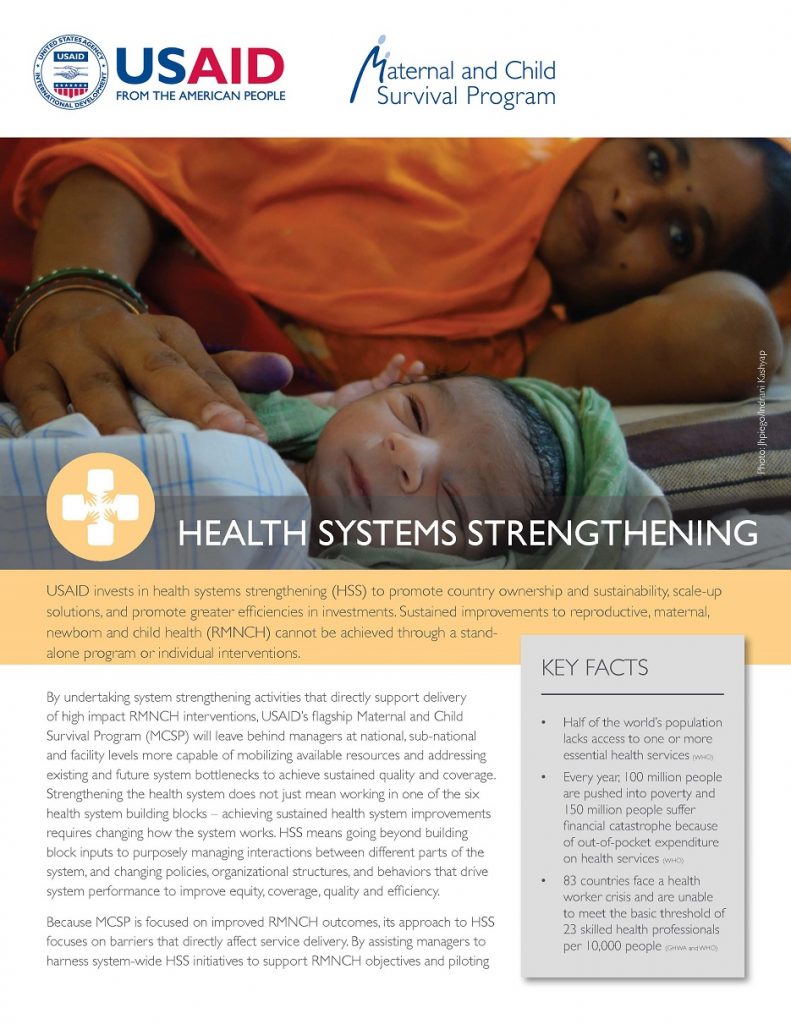

Features key facts and Program work in health systems strengthening. […]
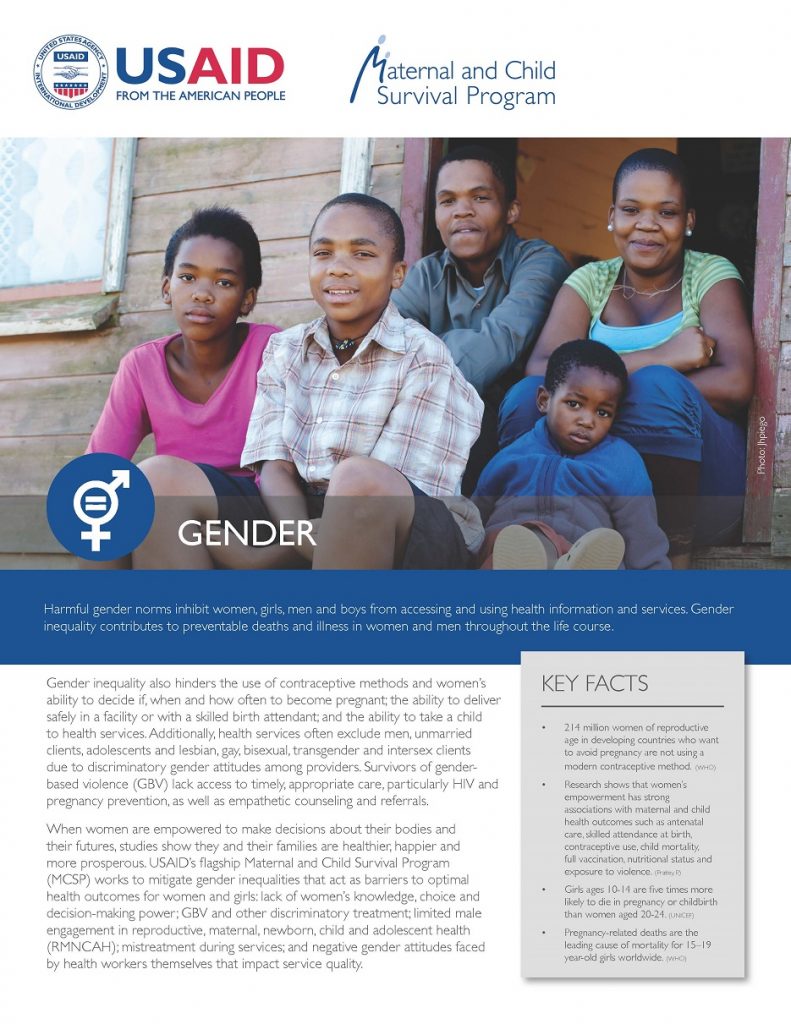
Features key facts and Program work in gender. […]
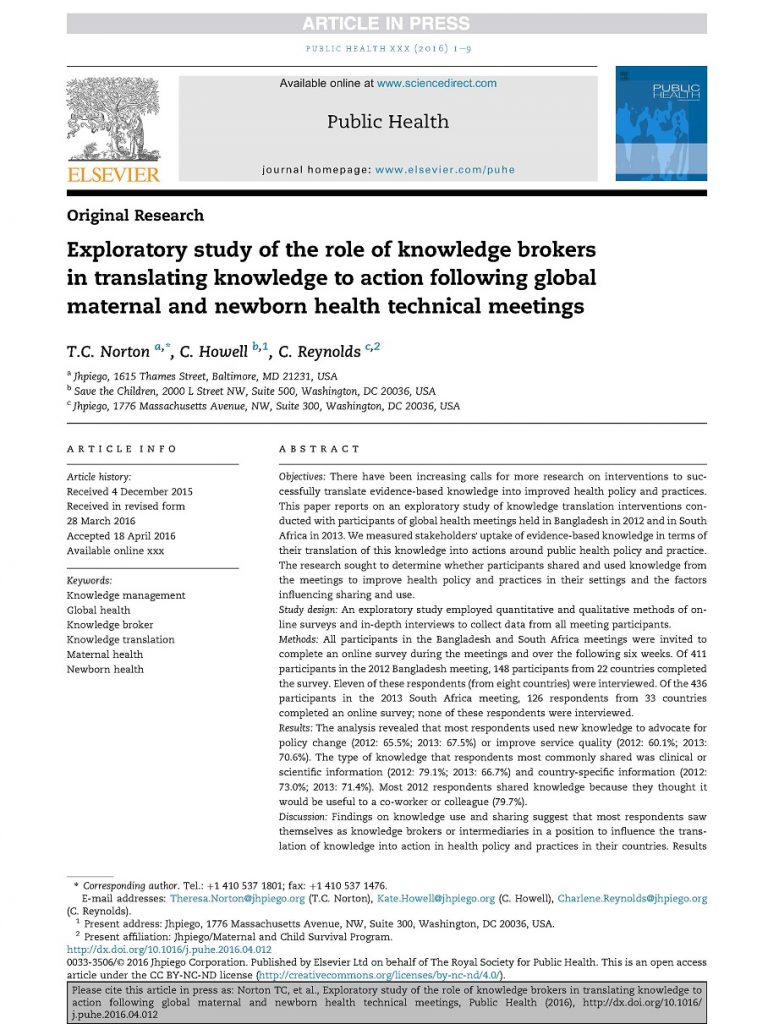
This paper reports on an exploratory study of knowledge translation interventions conducted with participants of global health meetings held in Bangladesh in 2012 and in South Africa in 2013. The authors measured stakeholders’ uptake of evidence-based knowledge in terms of their translation of this knowledge into actions around public health policy and practice. The research […]
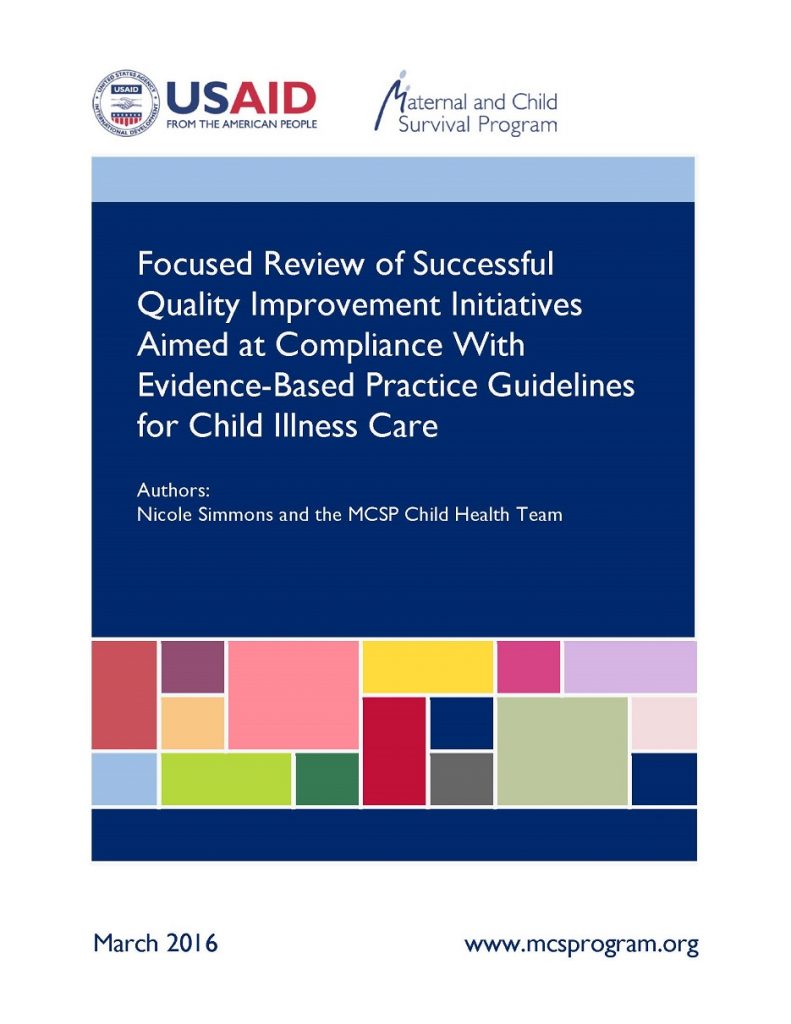
This review of peer-reviewed and grey literature focuses on health worker compliance with evidence-based protocols, one of the eight domains of the Quality of Care framework developed by the World Health Organization. Despite the adoption of Integrated Management of Childhood Illness in 100 countries and the rapid uptake of integrated community case management, there is […]
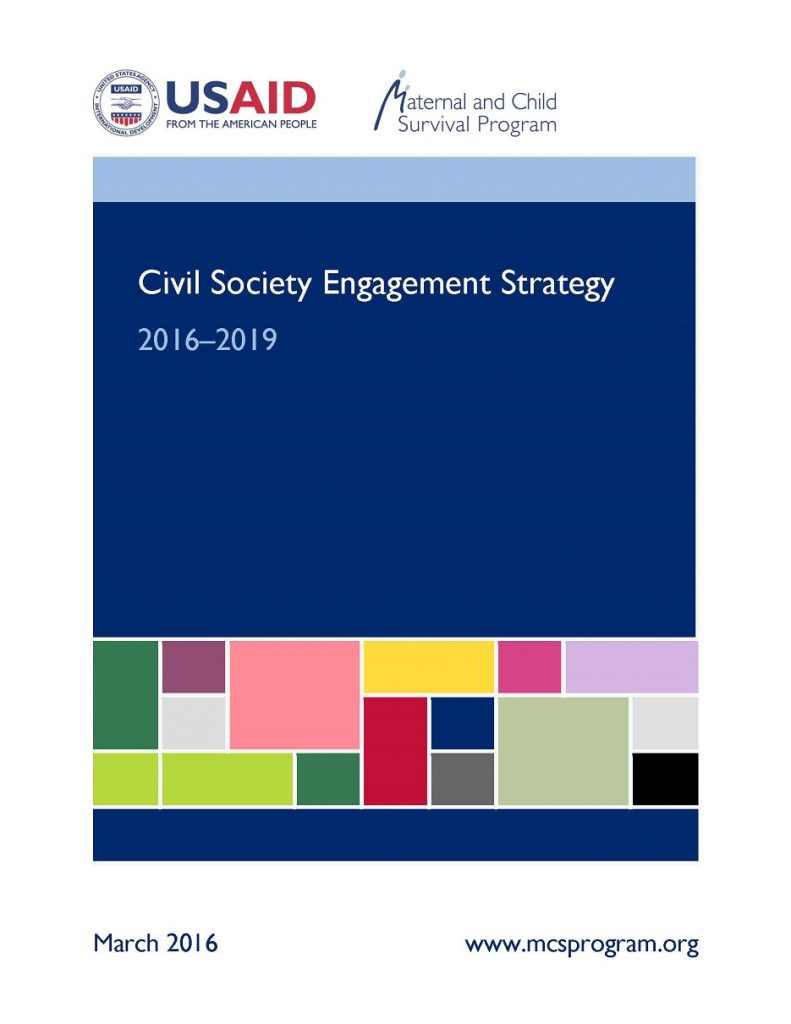
This document describes a strategy for MCSP to strengthen engagement with civil society in order to accelerate progress of the Ending Preventable Child and Maternal Deaths project, including strengthening multi-stakeholder partnerships in support of Every Woman Ever Child’s Global Strategy 2.0. This shared engagement strategy provides a unique opportunity to align action, voice and resources […]
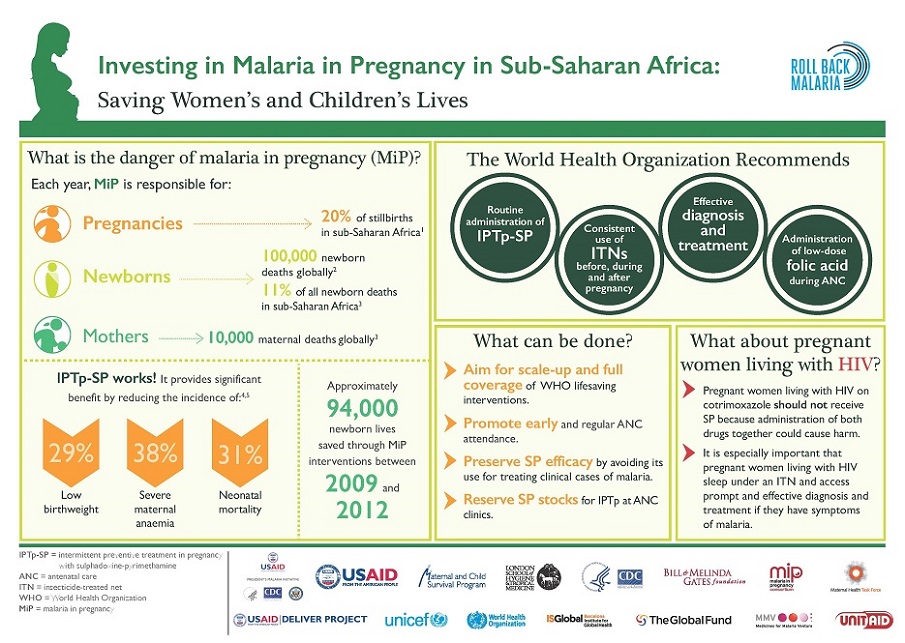
To download the English version of the infographic on malaria in pregnancy dangers, recommendations and messages, click here. The infographic is also available in French and Portuguese. […]
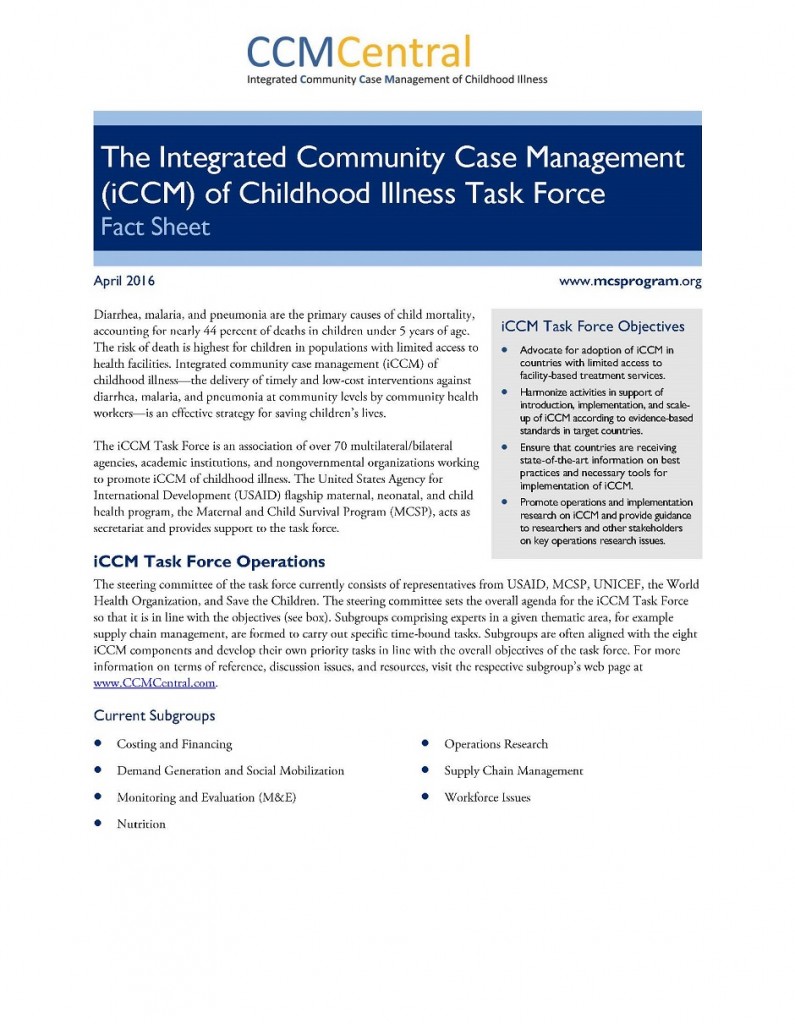
This document outlines the four objectives of the iCCM Task Force, an association of 70 multilateral/bilateral agencies, academic institutions, and nongovernmental organizations. MCSP acts as secretariat and provides support to the Task Force. […]
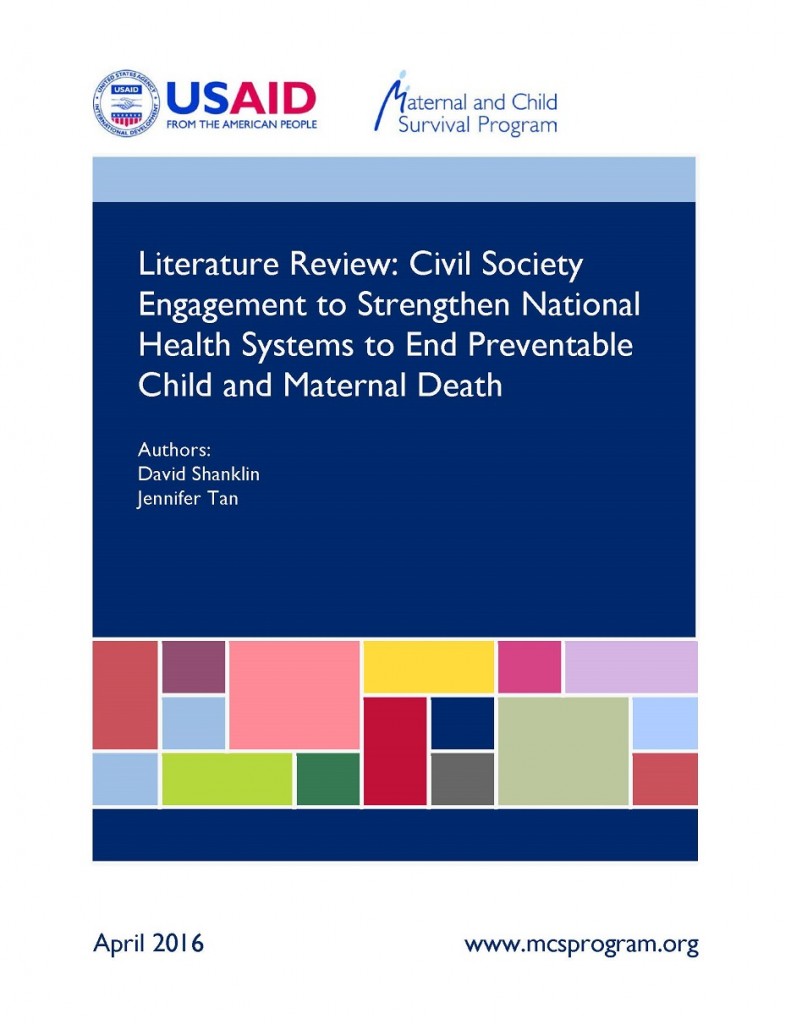
This document summarizes a literature review on civil society engagement to strengthen national health systems to end preventable child and maternal death. The role of civil society in national health system strengthening remains ill-defined as disagreements continue to exist concerning the roles and responsibilities of donors, governments and civil society itself. The authors aim to […]
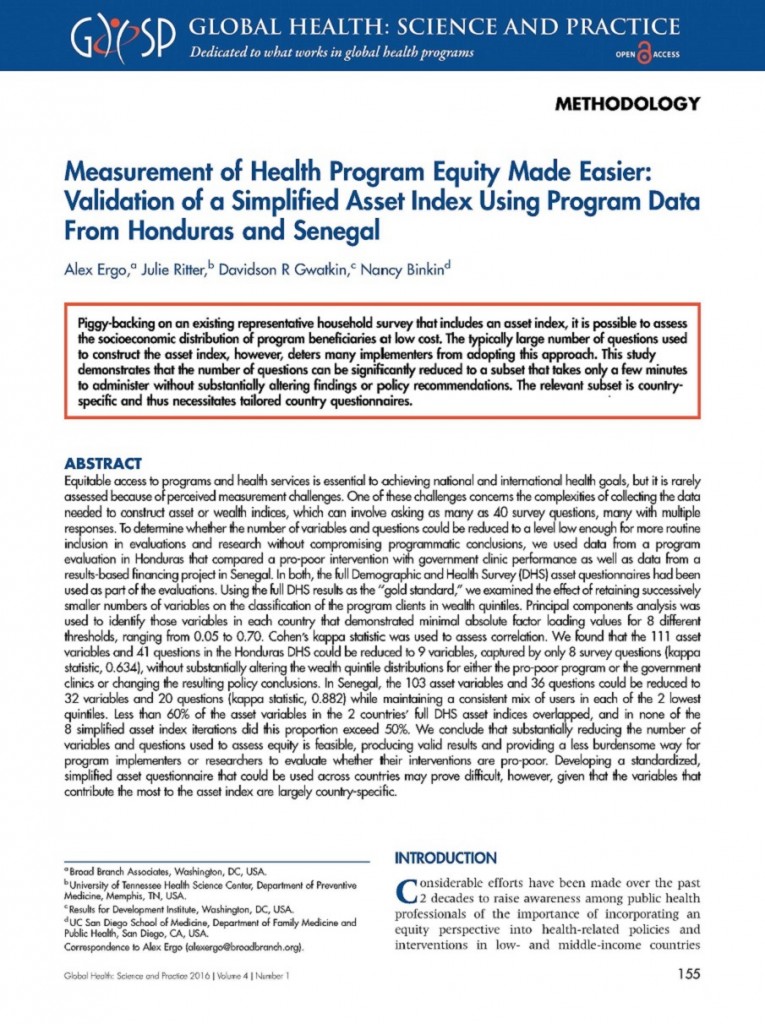
Piggy-backing on an existing representative household survey that includes an asset index, it is possible to assess the socioeconomic distribution of program beneficiaries at low cost. The typically large number of questions used to construct the asset index, however, deters many implementers from adopting this approach. This Global Health: Science and Practice article highlights a […]
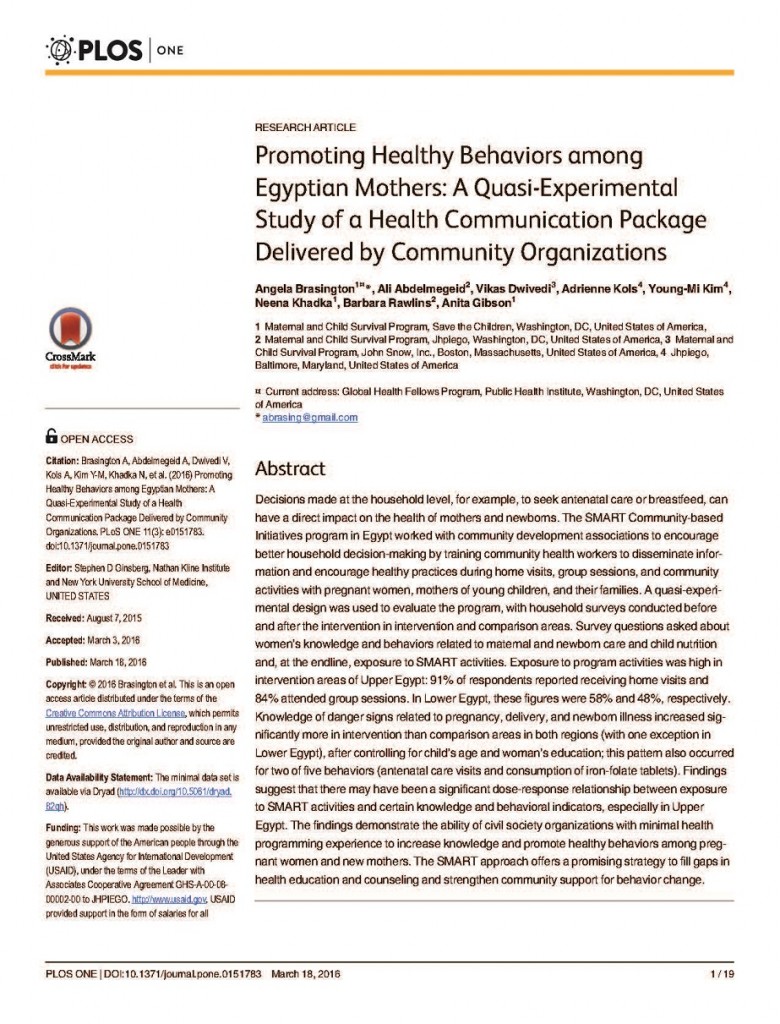
This MCSP co-authored article, published in the journal PLOS ONE, examines how decisions made at the household level—to seek antenatal care or breastfeed, for example—can have a direct impact on the health of mothers and newborns. The SMART Community-based Initiatives program in Egypt worked with community development associations to encourage better household decision-making by training […]